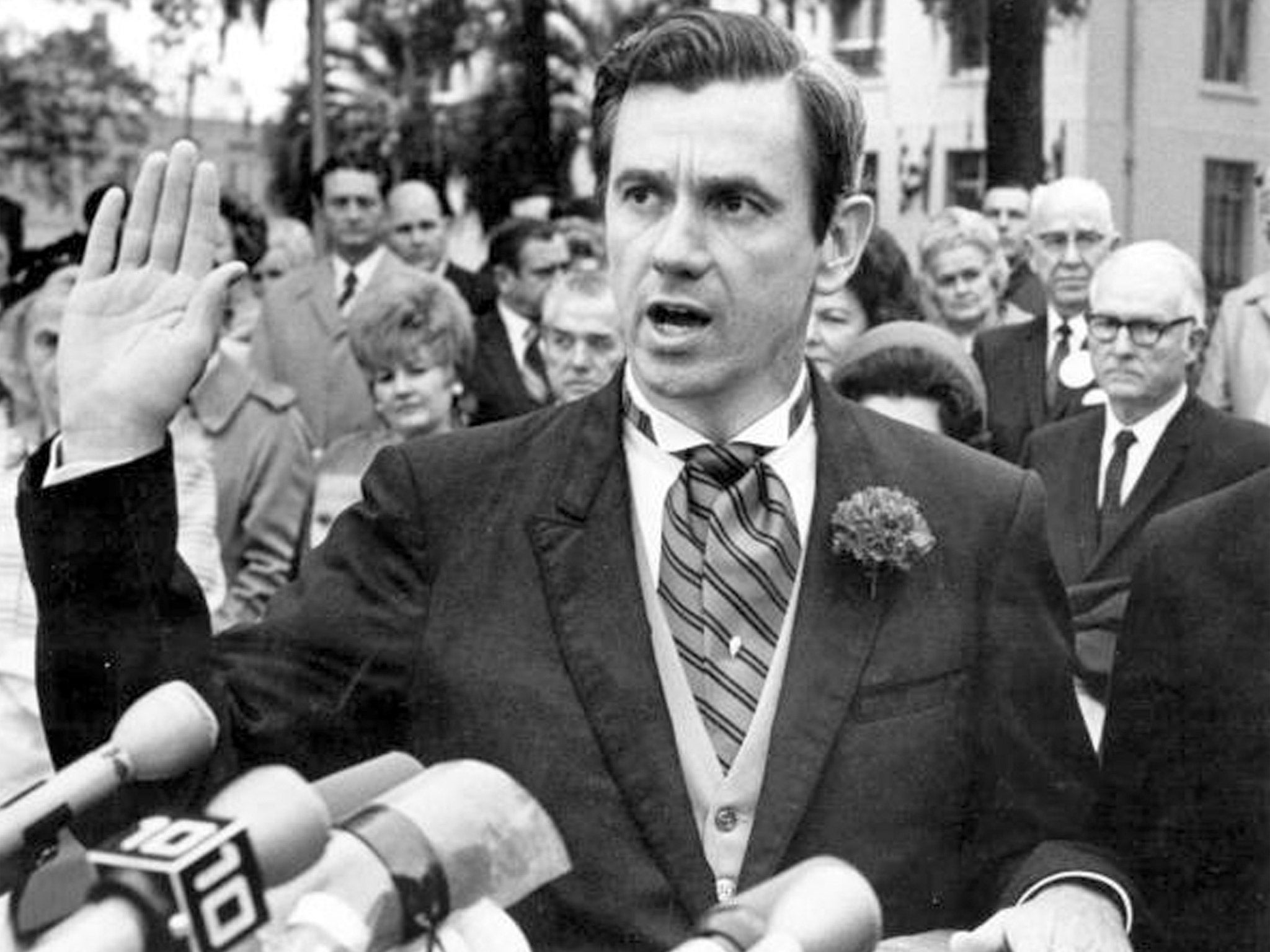Reubin Askew: Governor of Florida who championed desegregation, government accountability and chances for the poor

As governor of Florida for two terms in the 1970s Reubin Askew instituted landmark reforms in desegregation, government accountability and environmental protection. Defying political custom, party loyalties and entrenched business interests, he launched a series of reforms designed to make state government more open and to increase opportunities for the poor and disenfranchised.
He was elected governor in 1970, the same year as other progressive southern Democrats like Jimmy Carter. A supporter of racial equality since the 1950s, Askew soon integrated the state highway patrol and other state agencies. He supported busing to end school desegregation, despite overwhelming opposition.
He expanded consumer and environmental protection measures and introduced the state's first corporate income tax – which he called a "corporate profits" tax. He faced a furious backlash from business owners, but the public sided with him. During his second term he appointed the first African-American justice to the state supreme court, the first African-American to lead a state agency and the first African- American cabinet official since Reconstruction.
By the end of his eight years in office, Askew had won over many of his opponents, including Dempsey Barron, a long-time opponent in the state legislature. "He has exhibited a kind of morality in office," Barron said, "that causes people to have faith in the governor's office to a higher degree than we have seen in a long, long time."
MATT SCHUDEL
Reubin O'Donovan Askew, politician: born Muskogee, Oklahoma 11 September 1928; married (one son, one daughter); died Tallahassee, Florida March 13 2014.
© The Washington Post
Join our commenting forum
Join thought-provoking conversations, follow other Independent readers and see their replies
Comments